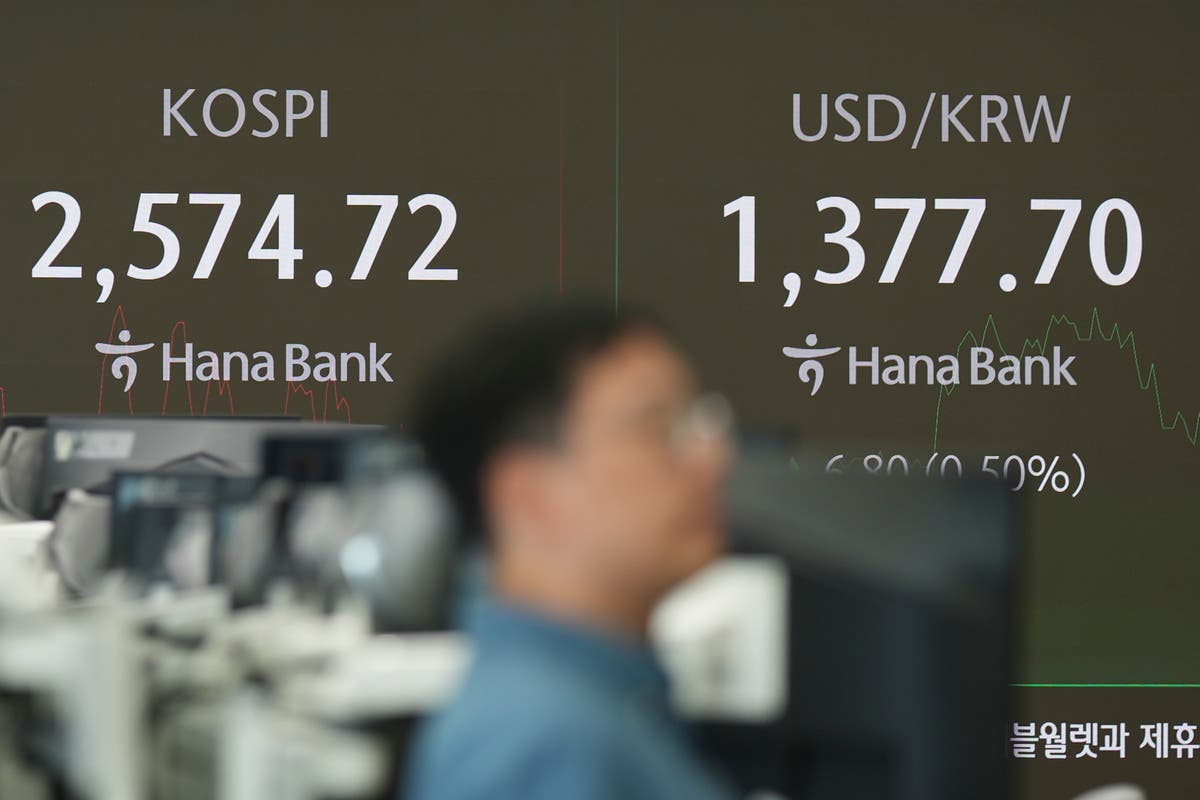Shares were mixed in Asia early Tuesday after U.S. stock indexes drifted lower a day ahead of the U.S. presidential election.
This week will bring various potential flashpoints, among them Election Day in the United States. But the results may not be known for some time as officials count all the votes, and that could bring sharp swings since markets hate uncertainty.
U.S. futures were virtually unchanged early Tuesday.
Adding to the potential for volatility, the Federal Reserve will also be meeting on interest rates later this week. The widespread expectation is for it to cut its main interest rate for a second straight time.
Investors also hope the Chinese government may announce stimulus for the world’s second-largest economy.
Japan’s Nikkei 225 index gained 1.3% to 38,552.67, reopening after a holiday on Monday.
South Korea’s Kospi fell 0.7% to 2,569.75, while the S&P/ASX 200 in Australia dropped 0.6% to 8,117.30.
The Standing Committee of China’s National People’s Congress is meeting this week, and analysts say the government may endorse major spending initiatives to boost economic growth amid troubles for the country’s real-estate industry.
The official Xinhua News Agency reported that the lawmakers had reviewed legislation to raise ceilings on local government debt to replace existing hidden debts, part of a process to arrange debt swaps to help resolve the financial woes brought on by the pandemic and by a collapse in the property market in recent years.
Hong Kong’s Hang Seng was up 0.1% at 20,597.30 and the Shanghai Composite index picked up 0.4% to 3,323.26.
On Monday, the S&P 500 slipped 0.3% to 5,712.69, remaining near its record set last month. The Dow Jones Industrial Average fell 0.6% to 41,794.60, while the Nasdaq composite slipped 0.3% to 18,179.98.
Intel fell 2.9%, and chemical producer Dow sank 2.1% in their first trading since getting notified they’ll no longer be included in the Dow Jones Industrial Average. Warren Buffett’s Berkshire Hathaway dropped 2.2% and was one of the heaviest weights on the market after reporting a drop in operating profit for the latest quarter.
But the majority of stocks within the S&P 500 rose, including a 2.8% gain for Fox after it reported a stronger profit than expected.
The hope that’s propelled U.S. stock indexes to records recently is that the U.S. economy can remain resilient and avoid a long-feared recession, in part because of the coming cuts to rates expected from the Fed.
The broad U.S. stock market has historically risen regardless of which party wins the White House. And in 2020, U.S. stocks climbed immediately after Election Day and kept going even after former President Donald Trump refused to concede and challenged the results, creating plenty of uncertainty. A large part of that rally was due to excitement about the potential for a vaccine for COVID-19, which had just shut down the global economy.
A Trump victory would be less of a surprise to markets this time around than in 2016, when Treasury yields soared on expectations for tax cuts that could further inflate the nation’s debt or fuel a stronger U.S economy. Treasury yields have already climbed in recent weeks, in part due to rising expectations among some for a Trump win.
On Monday, Treasury yields gave back a chunk of those gains. The yield on the 10-year Treasury fell to 4.29% from 4.38% late Friday.
Another investment that’s become a barometer in the market for Trump’s perceived chances of victory swung sharply through the day. After veering between losses and gains through the morning, Trump Media & Technology Group ended up rising 12.4%.
In the oil market early Tuesday, the price for a barrel of U.S. crude fell 7 cents to $71.40. On Monday, it rose 2.8% after Saudi Arabia and other oil producers said they would delay plans to increase the amount of crude they produced.
Brent crude, the international standard, added 12 cents to $75.20. It rose 2.7% a barrel on Monday. The price of Brent is still down for the year so far, in part because of worries about how much demand will come from China given its economic challenges.
In currency dealings, the dollar rose to 152.33 Japanese yen from 152.10 yen. The euro fell to $1.0876 from $1.0880.
___
AP Business Writer Stan Choe contributed.


